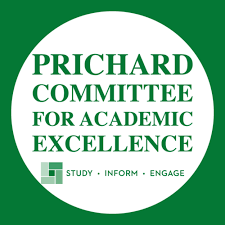The Prichard Committee for Academic Excellence released an analysis of Amendment 2, a proposed amendment to the Kentucky State Constitution that would allow the allocation of public funds for school choice options beyond traditional public schools.
The analysis, which outlines the potential financial and educational impacts of the change in the law, concludes that funding private K-12 educational institutions is neither an appropriate nor an effective use of public funds.
Amendment 2 will appear on the ballot in November.

“An amendment to the Kentucky Constitution that opens up private school choice with public funds will likely have significant negative consequences for Kentucky’s long-standing push to improve educational outcomes,” said Brigitte Blom, president and CEO of the Prichard Committee. “Diverting public funds to private school choice sets the stage for an unregulated market with no accountability to the taxpayers who fund it and no sustained research to justify such an investment.”
Passage of the amendment would allow lawmakers to allocate public funds to support private schools (including parochial schools), homeschooling, and charter schools through various funding mechanisms such as vouchers, tax credits, and education savings plans.
The Prichard Committee says that “diversion of funds to private schools has been shown to spread scarce resources across more providers, thereby undermining overall access and improvement in the quality of education, particularly in areas of population decline. This is certainly true in rural areas of the state and could likely be true for the entire state, given that population decline is projected for years to come.”
Amendment 2 would also allow the state to invest in educational options that create hurdles to accountability. Public schools are subject to accountability standards from which private, religious and homeschooling schools are currently exempt.
Research shows that in states with high participation in school choice programs, a significant portion of the funds often go to wealthier families, while lower- and middle-income families have fewer resources available for the public schools they rely on. Ensuring that public funds stay in the public education system helps distribute resources equitably and contributes to better outcomes for all students, the analysis found.
In addition, public schools are required to accept all students, including those with disabilities and additional support needs. Many private schools are not required to guarantee the same level of support to students with learning difficulties. The obligation to accept all children falls on the public system, which has fewer resources.
“It’s critical to invest state dollars in something that works, and that’s even more true in a state like Kentucky, where we’ve risen from the bottom of the national rankings to the middle of the pack since the 1990s,” Blom said. “While there’s still a lot of work to do to continue to improve educational outcomes — and parents can and must demand that improvement — now is not the time to spend public dollars on strategies that will, at best, produce no lasting results — and, at worst, negative results.”
Read the Prichard Committee’s full analysis here.
Prichard Committee for Academic Excellence

